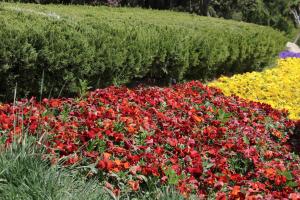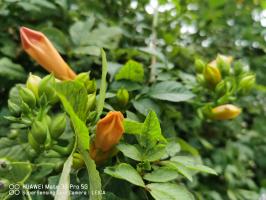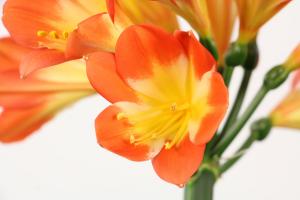Introduction
Water is a precious resource that must be conserved to ensure its availability for future generations. Plant nurseries, which grow plants in large quantities as well as provide landscaping services to businesses and homeowners, are significant water consumers. Therefore, it is essential for plant nurseries to develop sustainable water management practices to save water and reduce their environmental impact. In this article, we will explore some of the ways in which plant nurseries can save water.
Use of Drought-Tolerant Plants
One of the most effective ways plant nurseries can save water is by using drought-tolerant plants. These plants are more resistant to dry conditions, require less watering, and are more tolerant of extreme temperatures. By utilizing drought-tolerant plants, plant nurseries can significantly reduce their water consumption and cut back on the need for irrigation. Additionally, this can result in reduced maintenance costs, as these plants are more resilient and require less care.
Capturing and Reusing Water
Another way in which plant nurseries can save water is by capturing and reusing water. This can be accomplished through a variety of means, including rainwater harvesting, drip irrigation, and graywater reuse. Rainwater can be collected from roofs and gutters and stored in tanks for later use in irrigation. Drip irrigation systems deliver water slowly and directly to the roots of plants, reducing water wastage. Graywater, which is wastewater from sinks, showers, and washing machines, can be treated and reused in irrigation systems. By capturing and reusing water, plant nurseries can significantly reduce their water consumption and dependence on freshwater sources.
Use of Mulch and Compost
Mulch and compost are organic materials that can be used to reduce water loss from soil and to support healthy plant growth. Mulch, which is a layer of organic material placed on the soil surface, reduces water evaporation by creating a barrier between the soil and the air. Compost, which is a mixture of organic materials that has been decomposed, improves soil health and structure, making it easier for the soil to retain moisture. By using these materials, plant nurseries can reduce their water usage while simultaneously promoting plant growth and reducing the need for chemical fertilizers.
Water-Efficient Irrigation Systems
Plant nurseries can also save water by using water-efficient irrigation systems. Such systems use technology like soil moisture sensors and weather-based controllers to determine when and how much water to deliver to plants. By applying the right amount of water at the right time, water-efficient irrigation systems can reduce water usage by up to 30%. Furthermore, these systems can also improve plant health and growth, leading to higher yields and better quality products.
Conclusion
Plant nurseries play an important role in our economy and environment, but they also consume a significant amount of water. By developing and implementing sustainable water management practices, plant nurseries can reduce their water consumption and environmental impact, while simultaneously improving plant health and reducing maintenance costs. Whether using drought-tolerant plants, capturing and reusing water, using mulch and compost, or investing in water-efficient irrigation systems, there are many ways in which plant nurseries can save water and promote long-term sustainability.

 how many times do yo...
how many times do yo... how many planted tre...
how many planted tre... how many pine trees ...
how many pine trees ... how many pecan trees...
how many pecan trees... how many plants comp...
how many plants comp... how many plants can ...
how many plants can ... how many plants and ...
how many plants and ... how many pepper plan...
how many pepper plan...






























